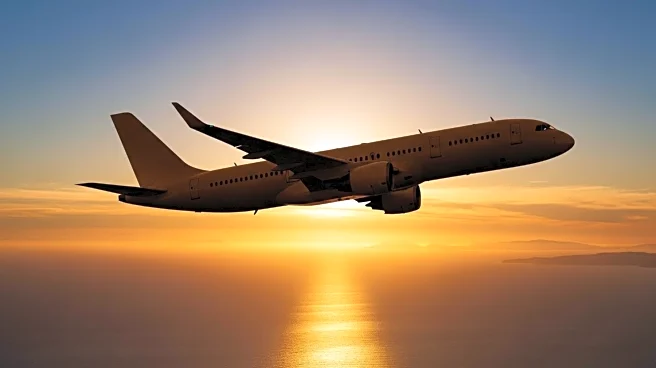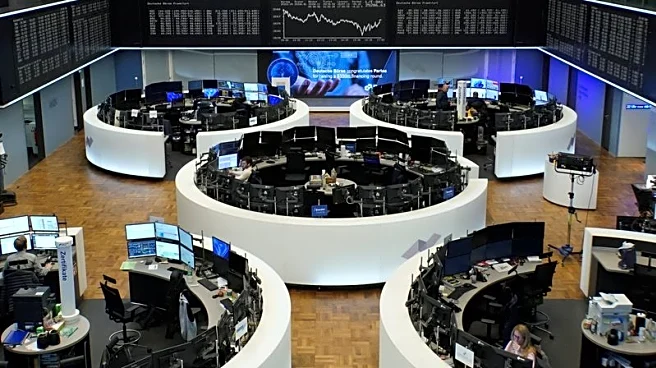What's Happening?
United Airlines has announced the addition of a third flight frequency between Tel Aviv and New York/Newark, set to begin on March 30, 2026. This new service will operate four times a week, complementing United's existing twice-daily flights on the route. The expansion is part of United's Summer 2026 schedule, which includes new routes to Split, Croatia; Bari, Italy; Glasgow, Scotland; and Santiago de Compostela, Spain. United will also introduce a daily, year-round nonstop flight from Newark to Seoul, South Korea, and a new service from Washington Dulles to Reykjavik, Iceland. United plans to serve 46 destinations across the Atlantic with over 800 weekly roundtrips, making it the leading U.S. airline in transatlantic service.
Why It's Important?
The expansion of United Airlines' transatlantic network reflects a strong rebound in international travel demand and improved global stability. By increasing its flight offerings, United is positioning itself to capture a larger share of the transatlantic travel market, which is crucial for its growth strategy. The new routes provide more options for travelers and enhance connectivity between the U.S. and Europe, potentially boosting tourism and business travel. United's strategic move also underscores the importance of Newark Liberty International Airport as a major hub for international flights, further solidifying its role in global air travel.
What's Next?
United Airlines' new flights are subject to government approval, and bookings are available on United's website and app. As the airline expands its network, it may face competitive pressures from other carriers seeking to capitalize on the growing demand for transatlantic travel. Additionally, United's focus on increasing connectivity could lead to further enhancements in its service offerings and customer experience. Stakeholders, including airport authorities and tourism boards, may collaborate with United to promote these new routes and maximize their economic impact.
Beyond the Headlines
The expansion of United Airlines' transatlantic network could have broader implications for the airline industry, including potential shifts in market dynamics and increased competition among carriers. The move may also influence airport infrastructure development and investment in Newark and other hubs. Furthermore, the increased connectivity could foster cultural exchange and strengthen economic ties between the U.S. and the newly connected destinations.










